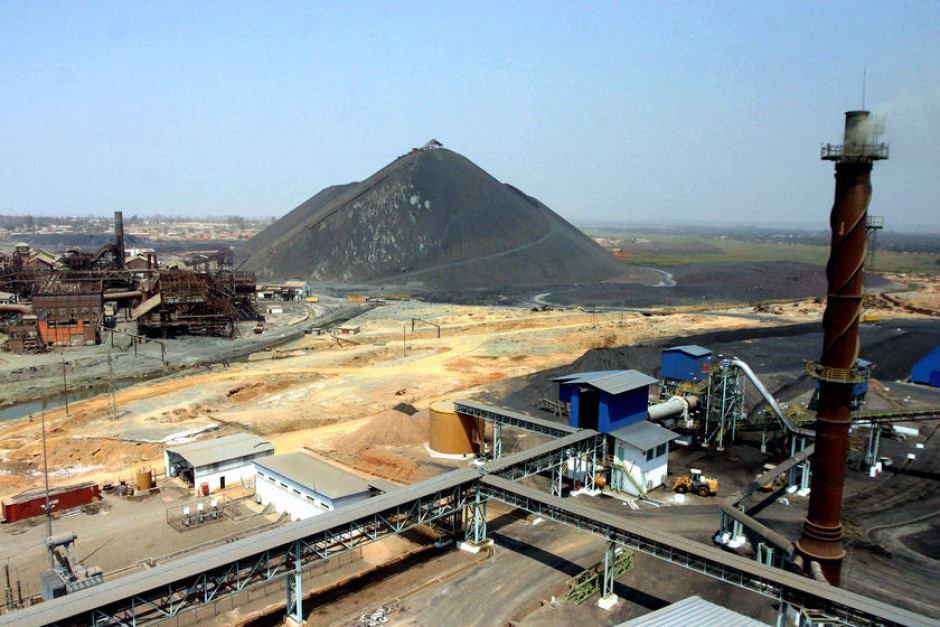Oscarline Onwuemenyi
16 September 2014, Sweetcrude, Lagos – Many stakeholders in the nation’s mining and minerals sector have expressed concern that Nigeria has not been able to take advantage of its vast mineral resources, showing a clear unpreparedness to stake its claim in the rush by international investors for the natural wealth of countries, especially as witnessed in neigbouring African countries.
Like Nigeria, neigbouring countries in West Africa including Ghana, Sierra Leone, Mali, Guinea and Liberia, have a rich history of mining which has endured for several years. However, unlike Nigeria, most of these countries did not discover crude oil in commercial quantities early, a fact that has been blamed for the downward slide of mining and minerals exploration in Nigeria. In fact, many experts believe that with the discovery of petroleum began the decline in other productive aspects of the economy including mining and agriculture.
 To this extent, the country is seen to have relegated the mining and minerals sector in pursuit of petro-dollars, and as a result lost its competitive edge in the sector. Thus, while Ghana prospered from its exploration of gold and Sierra Leone got relatively wealthy from mining diamond, the same cannot be said about Nigeria in these sectors. This phenomenon, therefore, greatly impeded the country’s potential in mining while leaving it bereft of investors who deem the country unserious about developing its solid minerals sector.
To this extent, the country is seen to have relegated the mining and minerals sector in pursuit of petro-dollars, and as a result lost its competitive edge in the sector. Thus, while Ghana prospered from its exploration of gold and Sierra Leone got relatively wealthy from mining diamond, the same cannot be said about Nigeria in these sectors. This phenomenon, therefore, greatly impeded the country’s potential in mining while leaving it bereft of investors who deem the country unserious about developing its solid minerals sector.
Even as Nigeria quickly lost the exploration dollars to its smaller neigbours – some of them with even far less mineral resources compared to Nigeria – it, over the years, also lost its competitive advantage in metals development to more serious economies.
According to the Managing Director of Fugro Geophysical Services Ltd, a leading service provider for the collection and interpretation of data relating to mining and minerals research, Dr. Godwin Ofune, the once dominance Nigeria enjoyed prior to the discovery of oil “faded away because the people in authority did not consider the potential in the mining industry to bring about development and economic empowerment. The leaders then were all of a sudden enamoured by the idea of cheap and easy money coming from the exploration of crude, and abandoned the solid minerals sector.”
Ofune believes, however, that Nigeria still possesses immense capacity to reclaim its pole position in mining and therefore attract billions of dollars’ worth of exploration investments that have been going to neigbouring countries as well as South Africa and Angola.
He stressed that for the nation to develop its economy, it must look inwards to identify areas where it has comparative advantage over other nations and efforts should be geared towards the development of the identified areas. “Because the competition for exploration dollars is tight, Nigeria must focus only on metals or resources where it has the greatest comparative advantage and it must leverage on its huge database and other major improvements in the sector to translate potentials into viable investments,” he added.
Apart from hydro-carbon (crude oil) deposit which the country has in abundance, it also has comparative advantage in the solid minerals sector owing to the large deposit of minerals in different parts of the country. Geological surveys and studies have determined that Nigeria is endowed with over 45 mineral types, of which a good number are found in commercial quantities in about 500 locations spread across the 36 states of the federation and the Federal Capital Territory (FCT). If properly harnessed over time, the minerals and metals sectors of the economy can contribute a minimum of 20 per cent to the nation’s GDP, as against the current situation of less than one per cent.
Besides, the country is said to have potentials for over 42 billion tons of bitumen and gold in various locations in the south western part of the country, while there are huge proven reserves of rock salt in Plateau, Enugu and Imo states. Other solid minerals with substantial commercial reserves in the country include iron-ore, tantalite, kaolin, feldspar, barites, copper, tourmaline, glass-sand, marble, lignite, dolomite, coal, salt, bauxite, phosphate, sand tar, zinc, lead, gypsum, uranium, tin, manganese, and graphite.
Apart from these minerals, Nigeria is also blessed with different types of gemstones. Gemstone mining has boomed for several years in various parts of Plateau, Bauchi and Kaduna states. Some of these gemstones include sapphire, ruby, aquamarine, emerald, turquoise, topaz, tourmaline, garnet, amethyst, zircon and fluorspar, which are among the best in the world.
The visit by the past Minister of Mines and Steel Development, Mrs. Diezani Alison-Madueke in April last year to Hollywood, California to exhibit these gemstones was meant to draw the world’s attention to the richness of the country in such precious stones.
However, in spite of the enormous resources that abound in the country in solid minerals, it is alarming that the sector has contributed less than three percent to the national GDP. This fact is blamed on the crass underdevelopment of the solid minerals industry, which has resulted in the country often importing some of the things it could easily produce, from steel to salt.
So, why is the nation not taking advantage of its vast natural resources to grow its economy and advance the livelihood of millions of its citizenry?
According to the current Minister of Mines and Steel Development, Mr. Musa Mohammed Sada, a lot of the blame for the nation’s inability to take advantage of the opportunities within the sector rested on the unavailability of sturdy laws and regulations to guide operations in the sector as well as the poor information bank about the sector to prospective investors. He further traced the problem to the neglect of the sector by successive administrations and poor financing, pointing out that the present administration is focused towards providing an effective, efficient and transparent management in the minerals and metals sectors.
The Minister decried a situation where Nigeria is allowed to operate as a mono-product economy, saying that the only way to attain the aspiration of the country emerging as one of the world’s 20 biggest economies by the year 2020 is to diversify the economic base away from total dependence on oil resources. According to him, “Nigeria is endowed with huge deposits of solid minerals in different locations across the country, including talc, which has an estimated reserve of over 100 million tons in various sites in Niger, Kogi, Osun, Kwara, Ogun, Taraba and Kaduna states; iron ore, with deposits estimated to be in excess of three billion tons in Kogi, Enugu, Niger, Zamfara and Kaduna states.”
He said all the efforts, programmes, policies and activities of the ministry are geared towards ensuring that the solid minerals sector accounts for about 20 per cent of Nigeria’s gross domestic product (GDP).
Sada noted that new legislation on investment particularly in the mining sector has opened a wider opportunity for investment protection in a manner the investors would be able to enjoy some uncommon benefits including tax exemptions for a given period as provided for in the Nigerian Minerals and Mining Act, 2007. He also disclosed that the country has recently set up a Sustainable Minerals Development Fund to further develop the mining sector, stressing that the Fund would help to cushion the effect of expansion and financing the sector which is capital intensive.
The fund would be a joint project between the Nigerian government and commercial banks in the country to enable the banks to lend to potential investors for longer period of time to assist the miners generate enough revenue and be self sustaining.
“What Government is trying to do is to create a kind of Development Fund for the mining sector generally, whereby government will put its own money and ask the banks also to contribute. Because of the long gestation of mining activities to generate revenue, the fund created will allow banks solve some questions which will be able to allow lending for longer period of time, for the miners to be able to start generating revenue.”
He said apart from the development fund, government had embarked on massive infrastructure development to attract foreign investors into the sector. Ongoing efforts in this regard included dredging of the rivers around the coastlines to allow large vessels transport minerals from the mines to the outer coasts, expansion and rehabilitation of rail transportation as well as deregulation of the power sector.



